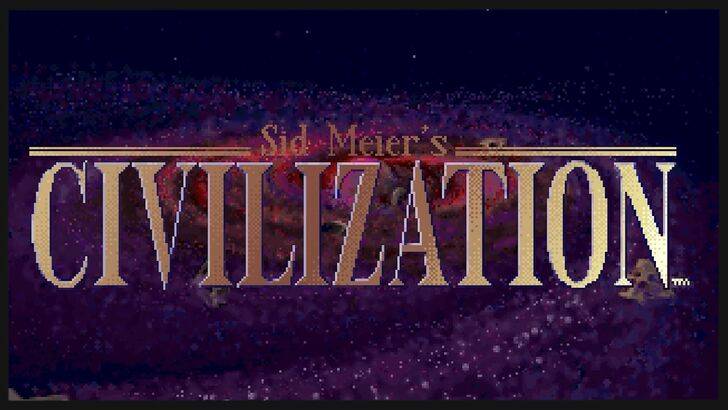In February 1945, as World War II neared its end, 20-year-old Rod Serling faced death daily. Like countless soldiers, he endured relentless combat. During a fierce battle in Manila, a Japanese soldier aimed at him, and Serling braced for the end.
“He thought, ‘This is it, I’m done,’” says Marc Zicree, author of The Twilight Zone Companion, in an interview with IGN. “He was certain his life was over.”
A fellow GI’s quick action saved Serling, killing the enemy before a shot was fired.
“That moment of believing he was finished stayed with him,” Zicree explains. “Such profound experiences shape who you are.”
After the war, Serling returned home and rose to fame as a television writer, earning the title of the “angry young man” of TV’s Golden Age. His wartime trauma infused his work, from The Twilight Zone’s iconic episodes to his lesser-known Western, The Loner, a one-season series reflecting his deep sense of justice.
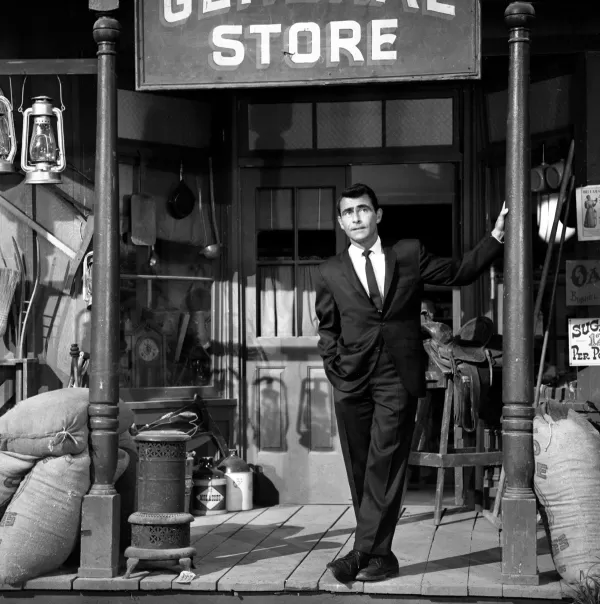
Television’s Golden Star
The Loner’s premiere, “An Echo of Bugles,” aired on CBS on September 18, 1965, introducing Lloyd Bridges as Captain William Colton, a Civil War veteran. The opening credits set the stage: “After the bloodshed of the Civil War, countless restless men drifted west…”
Colton’s journey echoes Serling’s own path after the war, though it took him years to reach Hollywood.
“Each decade brought a new chapter for Serling,” Zicree says. In the 1950s, he was television’s “golden boy,” the highest-paid writer with six Emmy Awards, more than any writer of his time.
Serling shone in live anthology dramas, a now-rare TV format akin to theater. “He was television’s Arthur Miller,” Zicree says, citing works like Patterns, Requiem for a Heavyweight, and The Comedian. Yet, battles with censors over controversial topics like politics and race frustrated him. A teleplay inspired by Emmett Till’s murder was so altered by networks and sponsors that Serling felt it was butchered.
“He hit a wall,” Zicree says. “So he turned to science fiction, fantasy, and horror to say what he wanted, bypassing the censors.”
“An alien could say what a politician couldn’t,” recalls Anne Serling, author of As I Knew Him: My Dad, Rod Serling.
Thus, The Twilight Zone was born, a hit that gave Serling full creative control and made him a household name as its host.
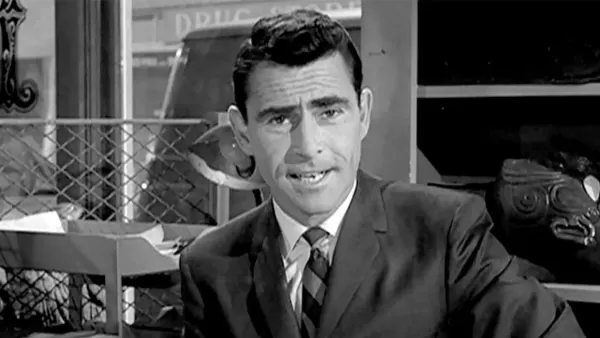
But control slipped as The Twilight Zone ended after five seasons. “He was exhausted,” Zicree says. “He felt his writing quality had dipped, like two versions of himself arguing in his scripts.”
The Loner’s Arrival
In The Loner’s debut, Colton defends a frail Confederate veteran (Whit Bissell) when a bully mocks him and desecrates his flag. A Union soldier in the war, Colton steps in not for politics but to protect the vulnerable, reflecting Serling’s own moral compass.
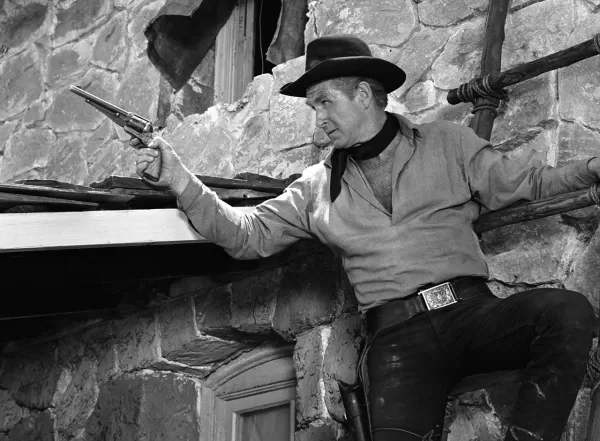
“Dad had a deep sense of decency,” says Jodi Serling. “Every story he wrote commented on the human condition.”
“Rod used The Loner to tackle issues like racism and anti-immigrant sentiment,” Zicree says. “But in the ’60s, with only three networks, upsetting the wrong people could end your career.”
CBS wanted a straightforward Western with weekly shootouts, not Serling’s philosophical dilemmas. “They expected action, not introspection,” Zicree notes. “What did they think they’d get hiring Rod Serling?”
“Networks wanted safe shows like Petticoat Junction or Bonanza, not ones sparking complaints,” Zicree adds.
In the pilot, flashbacks reveal Colton’s trauma from killing a young soldier in self-defense on the war’s final day, prompting him to leave the military despite a promotion. The gunfights were there, but not the kind CBS craved.
“Rod was no longer the golden boy,” Zicree says. “TV was becoming product, not art, and he faced growing disrespect.”
A Lasting War
In The Loner, William Colton carries the Civil War’s emotional scars. For Serling, it was World War II that left an indelible mark. Initially set on working with children, he switched to literature in college to process his trauma.
“He needed to get it out,” says Anne Serling. “He’d wake from nightmares of enemies attacking.”
“From an idyllic childhood to the horrors of war right after high school, it changed him,” Jodi Serling says. “Writing became his way to cope.”
War’s impact permeates his work, especially in The Twilight Zone. In “The Purple Testament,” a lieutenant in World War II, played by William Reynolds, sees a glow on faces before death. By the episode’s end, he sees it on himself, accepting his fate—a resignation Serling likely felt in combat.
“It captures the exhaustion and fear of war so vividly,” Zicree says. “You feel the writer lived it.”
Serling wrote 15 of The Loner’s 26 episodes, with Colton’s war experiences ever-present, though the show shifts to his quest to do good. In “The Vespers,” Jack Lord plays Reverend Booker, a former Confederate captain sworn against killing, even as assassins hunt him. In “One of the Wounded,” Colton meets Agatha Phelps (Anne Baxter), whose husband, Colonel John Phelps, is catatonic from war trauma, likely PTSD. A poignant exchange captures Serling’s insight:
Phelps: “I sometimes think a man can die from killing, as well as from being killed.”
Colton: “Which is one of the things that distinguishes him from an animal.”
“Dad saw himself in Colton,” Jodi Serling says. “A just man fighting for the powerless, righting wrongs.”
In “The Homecoming of Lemuel Stove,” Colton aids an African American Union soldier (Brock Peters), a former slave, whose father was lynched by a KKK-like group. The episode ends grimly, with Colton offering solace: “Lemuel Stove, you’re not alone.”
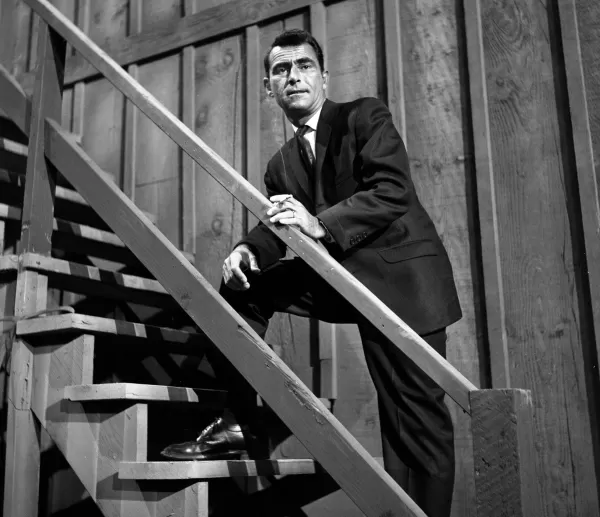
“His experiences shaped The Loner,” Anne Serling says. “But CBS canceled it for lacking violence, rejecting the themes he carried from The Twilight Zone.”
CBS clashed with Serling, and The Loner ended on March 12, 1966, six months after its debut. Rarely seen since, it lacked enough episodes for syndication but was later released on DVD by Shout! Factory. For fans of Serling, The Twilight Zone, or classic TV, it’s a hidden gem worth discovering.

